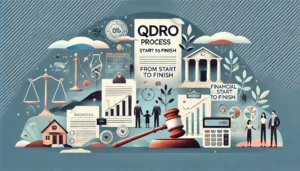Navigating the legal issues in the real estate market can be both exciting and daunting. Whether buying your first home, selling a property or investing in real estate, understanding the potential legal pitfalls is crucial for a successful transaction. In this article, we will explore the common legal issues that can arise during real estate transactions and provide practical strategies to help you avoid them.
The Importance of a Clear Title – Serious Legal Issue in Real Estate
One of the first hurdles in any real estate transaction is ensuring that the property’s title is clear. A clear title means the property is free from liens or claims that could affect your ownership.
Common Title Issues
- Liens: Unpaid debts or obligations can lead to liens against the property, preventing its sale.
- Easements: Hidden easements may limit your use of the property, potentially impacting its value.
- Ownership Disputes: Conflicting claims from previous owners can complicate the transaction process.
How to Avoid Title Issues
To ensure a smooth transaction, always conduct a thorough title search before finalizing your purchase. This will help identify any existing liens or disputes. Additionally, obtaining title insurance can provide peace of mind by protecting you against future claims.
Navigating Contractual Disputes
Real estate transactions are governed by contracts that outline the terms of the sale. Misunderstandings or poorly drafted contracts can lead to costly disputes.
Key Contractual Challenges
- Ambiguities: Vague language can lead to different interpretations, causing confusion.
- Contingency Failures: If contingencies (such as financing or inspections) are not met, it can result in breaches of contract.
How to Avoid Contractual Issues
Working with a qualified real estate attorney is essential. An attorney can review contracts to ensure clarity and legal compliance. When drafting contracts, be explicit in defining all terms and conditions to minimize the risk of misunderstandings.

Disclosure Obligations: What Sellers Must Know
In many jurisdictions, sellers are legally required to disclose specific information about the property, including any defects or issues that could affect its value.
Common Disclosure Problems
- Failure to Disclose: Sellers may neglect to mention known issues, leading to potential legal actions post-sale.
- Misleading Information: Providing incorrect details can result in severe ramifications for the seller.
How to Ensure Proper Disclosure
As a buyer, it’s crucial to thoroughly review all disclosure statements provided by the seller. Conducting a professional home inspection can also help uncover hidden issues that may not be disclosed.
Zoning and Land Use: Understanding Local Regulations
Zoning laws dictate how a property can be used and can significantly impact its value and functionality. Understanding these laws is essential for any real estate transaction.
Common Zoning Issues
- Non-Conformance: A property may not conform to existing zoning laws, resulting in fines or required modifications.
- Future Development Restrictions: Buyers should be aware of any restrictions that could affect future renovations or developments.
How to Navigate Zoning Challenges
Before making a purchase, research local zoning laws to understand how they apply to your prospective property. Consulting with local zoning authorities can provide insights into any upcoming changes that may impact the property’s use.
Financing: A Critical Component of Real Estate Transactions
Financing is often the backbone of real estate transactions, and issues related to securing financing can cause significant delays or even derail a deal.
Common Financing Problems
- Loan Denials: Buyers may face challenges in securing financing due to credit issues or insufficient documentation.
- Fluctuating Interest Rates: Changes in interest rates can impact affordability and loan approval.
How to Avoid Financing Pitfalls
Getting pre-approved for a mortgage can streamline the buying process, providing clarity on your budget and strengthening your position as a buyer. Maintaining a good credit score and preparing financial documentation in advance will also improve your chances of securing financing.
Conclusion: Proactive Steps for Successful Transactions
Real estate transactions can be fraught with legal challenges, but by understanding these common issues and implementing proactive strategies, you can significantly reduce stress and ensure a smoother process. Conduct thorough research, consult with legal professionals, and maintain open communication throughout the transaction.
At Jurisyn, we are dedicated to guiding you through the complexities of real estate law. Whether you’re buying, selling, or investing, our team is here to provide the legal support you need for a successful transaction. Contact us today to learn more about how we can help you navigate the real estate landscape with confidence!





